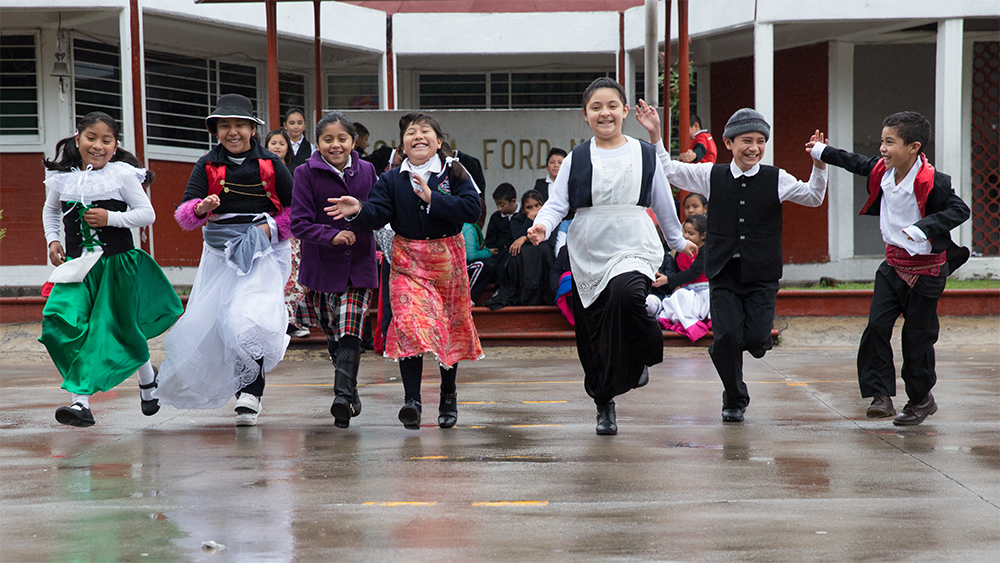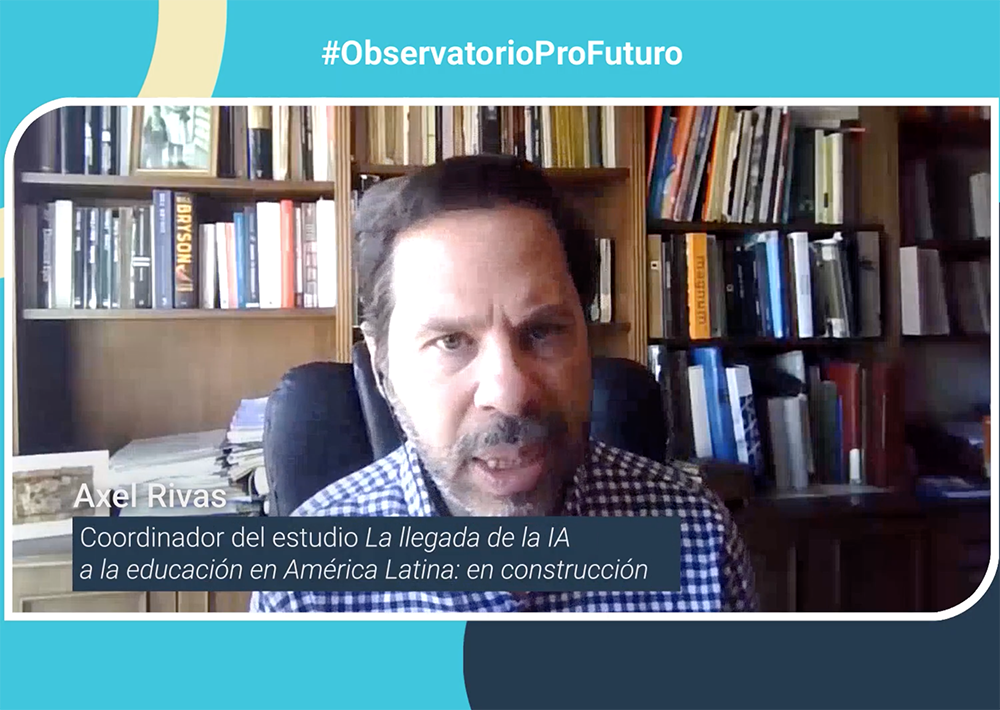The education that enlightens you
Dina Buchbinder grew up inspired by her grandmother Clarita’s stories: stories of how they escaped from Ukraine. Taking the boat, moving to a foreign country, finding a way to get the whole family out of there. These stories made her very uneasy: “I have never been able to understand why people have to escape. Right? I mean, there are many reasons, but why do those reasons exist? Why can’t people be born, grow up in a peaceful environment without having to escape?”
That restlessness, together with her lively and bouncy spirit (“it was really hard for me to just look at the blackboard and listen to the lesson and sit still”), was the seed that made Dina grow the firm conviction that education, real education, was something else: “I needed to play and move around to learn. And those were the moments when I really saw the light and felt alive, and I saw the same thing happening to my classmates”. Therefore, I was sure that there had to be other ways of educating. Something that did not involve sitting quietly and receiving information passively. A participatory education, in which movement, play and fun performed an important role: “The education system, as most of us know it, is not necessarily attractive, exciting, engaging; it doesn’t connect you to your best self. So, I do think there is a huge amount of work behind how we learn, how we teach, how we connect and how we are amazed by what there is to learn, right? in a healthy, fun, inclusive, exciting way”.
And so, 14 years ago, Education for Sharing was born, an international organisation whose main objective is to form better global citizens, starting from childhood, using the power of play to do so: “Play, reflect, act. That’s our framework”.
Global citizens to change the world
But what is a global citizen? For Dina Buchbinder, a global citizen is defined as “a person who, in any context, is able to put civic values into practice; someone who is aware of global challenges and how they relate to their community; someone who is interested in getting involved in solving these challenges and then develops skills to be able to make a contribution and act. To solve them on the individual level, but also collectively”. To solve those challenges, a global citizen has to develop competences and skills such as critical thinking, collaboration and teamwork, leadership, digital literacy, creativity, problem solving… To do this, “it is essential to foster that belief, that action as global citizens, from childhood”.
So how do we do this? How do we sow that seed? How do we prepare our children to become the global citizens that the great challenges in our society are demanding? Education for Sharing uses the 2030 Agenda as one of the most important ingredients of its methodology. However, translating those great global challenges in a tangible, fun and child-friendly way is a big challenge. Children need to understand why they are interested in them and what they have to do with them. To do this, they use the Sustainable Development Goals as pedagogical content in each of the games and activities they implement with teachers and educators in schools, community centres, at home… Any context is valid because play, says Dina, “is a universal language”.
So far, this has translated into more than 2,000 projects carried out by children towards achieving the millennium goals. But, most importantly, the children “carry out those projects with a set of civic values in practice. In other words, they do these projects by working as a team, playing fair, respecting others, including everyone, understanding the different strengths that each person brings to the team and how to dialogue and solve the challenges that arise”. This is shown in the results. Participants in the programme have increased their gender equality practices by 55%; there has been a 41% increase in fair play, and empathy has increased by 42 percentage points.
In terms of the challenges for teachers when teaching global citizenship, the most important challenges relate to the lack of articulation and alignment between global citizenship and systems of assessment and measurement of competences: “If we are going to assess children for addition, subtraction, reading… teachers will focus on this. Especially considering that they are always pressed for time”. However, her experience with more than 20,000 teachers has taught her that “many of them are willing to integrate and scale, as well as conquer new methodologies and ways of teaching to be relevant and useful, adding value to their students’ education”.
But for all this to become effective, for the education of future generations to be geared towards what today’s society demands of our citizens, it is essential to generate public policies that place the emphasis of education on the development of this global citizenship. For Dina, “teaching global citizenship and learning to add, subtract, read and write are not mutually exclusive. They can be linked in a very natural way”. In this sense, her experience and other similar experiences should become a basic information channel for governments on the integration of these new pedagogies and educational practices, which already exist, but which need to be translated into a macro system. That is why “governments have a fundamental role, but also, it is a gear: it is the role of governments, of the private sector, of everyday citizens, of international organisations, of academia…”.
A very fortunate coincidence
Education for Sharing and ProFuturo met in 2018 at the Global Festival of Sustainable Development Goals in Bonn, Germany. “It was an immediate click: we participated in a joint activity and formed a team that was naturally ready for action”. This led to the formation of a partnership that materialised in Club 2030, a digital education initiative focused on creating key sustainable development competencies in teachers and students. An initiative that, in Dina’s words, “brings together the best of both worlds: the power of play and the power of technology”.
This “click” that immediately linked the trajectories of ProFuturo and Education for Sharing was produced because both organisations share the development of global citizenship as one of the key points of their work.
The development of global citizenship among young children is in line with the three fundamental identities which, according to the Framework for Learning in the Digital Age, developed by ProFuturo, serve to empower the learner: we are citizens (identity for citizenship); we are knowledge builders (identity for knowledge building), and we are people in connection (identity for connection). These identities are articulated through various roles, components and functions which, as mentioned above, are in line with the development of global citizenship in Education for Sharing.
In the case of the construction of our civic identity, learning global citizenship helps us to deploy the functions of active citizenship, in which the learner intervenes, acts and cares about their natural, social and digital environment as part of their learning process; health, surroundings and environment, in which the learner promotes their personal well-being and harmonious relationship with the environment, and global and intercultural awareness, through which the learner is aware of the impact of their learning in a globalised world and the need for an intercultural response to diversity. The functions of motivation for learning, overcoming adversity and tolerance of uncertainty are also deployed.
In the case of our identity as knowledge builders, global citizenship helps us to develop functions such as critical and creative learning and the management of socio-emotional skills.
Finally, global citizenship promotes several functions related to our identity as connected people: for example, participation in the learning community, leadership for learning, interaction in diverse environments and empathy.
And so, this story that began a few years ago, with the simple question of a young girl moved by the vicissitudes of her family, has transformed the education and lives of hundreds of thousands of students in several countries around the world into another example of how global citizenship in action can change the world.






